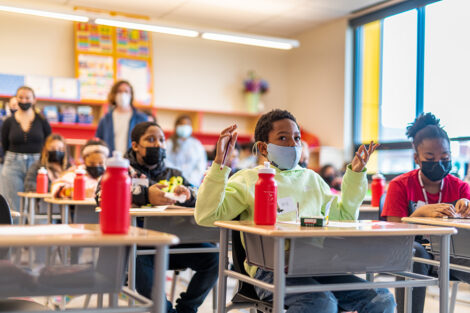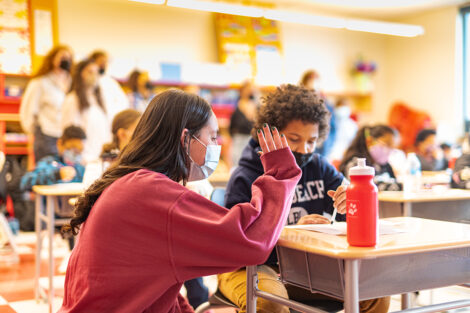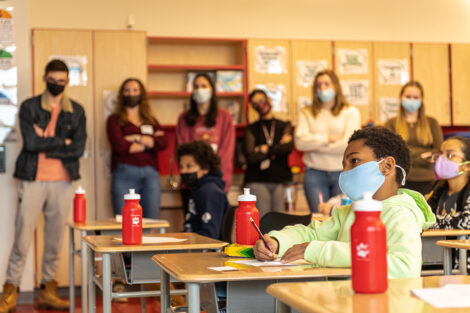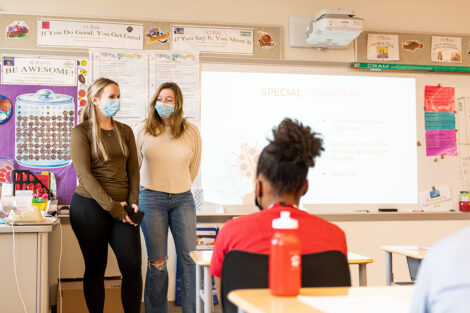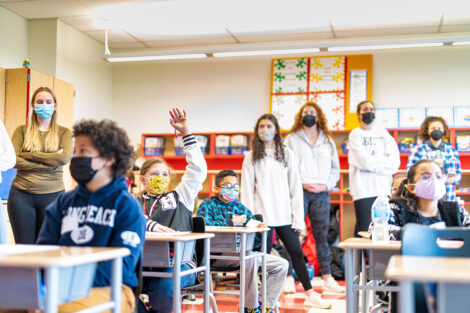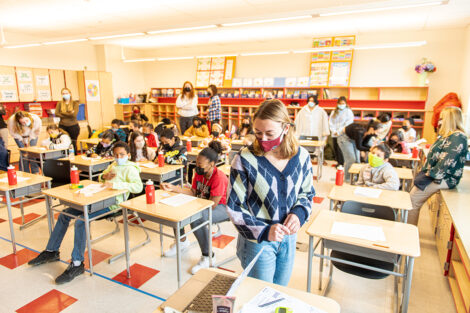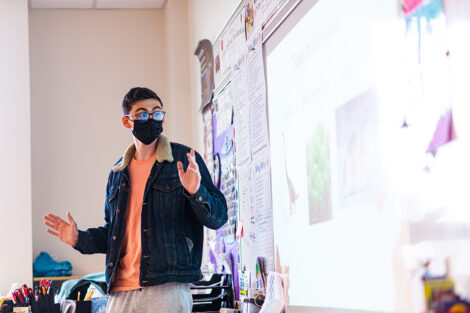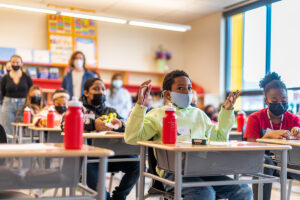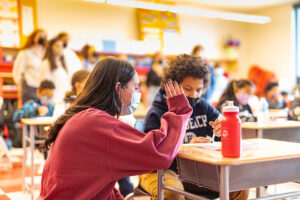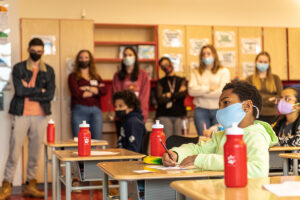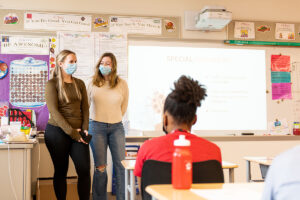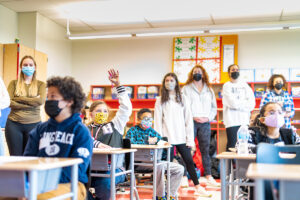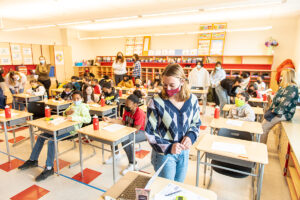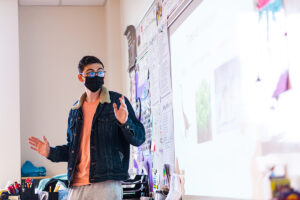Notice of Online Archive
This page is no longer being updated and remains online for informational and historical purposes only. The information is accurate as of the last page update.
For questions about page contents, contact the Communications Division.
Biology students gain valuable learning experience teaching Easton fifth graders about extinction
Megan Rothenberger, associate professor and chair of environmental science & studies, and her Conservation Biology students joined Krista Yetter’s fifth-grade class at Cheston Elementary as part of Landis Center for Community Engagement’s Connected Classrooms initiative.
Concepts covered:
- Extinction
- How scientists are currently in the sixth mass extinction event
- Habitat loss and how it contributes to extinction
- How plants and animals are interconnected
Feedback from Lafayette students:
“Interacting and helping these fifth grade students did not feel like just an ordinary lab assignment. Personally, I felt it was important to be in the classroom with these students as we exposed them to a critical field in this world: science. By giving back to the Easton community and programs like these, I believe the relationship between Lafayette and the rest of Easton is strengthened. These students, as far I was told, are not familiar with many science topics. We all worked very hard to make sure the lesson was broken down in a way that any student could understand and apply this knowledge outside of the classroom. While some of us were giving the prepared presentation, others made sure that all students were on track and filling in their worksheets. If you were in the classroom, you could see at least one of my peers paired up with a student in this classroom—kind of like their personal teacher for this lesson. This was crucial for the understanding of new concepts. We did not just want them to sit back and listen to us. We made sure activities and a small game were part of this memorable learning process. For me, the most fulfilling and heartwarming moment was when we were leaving and saying our goodbyes, and two students called me out to say ‘thank you.’ That special connection is unexpected and unlikely to develop in any other laboratory activity. –Maria Padilla ’22
“Personally, I thought this lesson was incredibly important and valuable. On the surface, this assignment was meant to show us, students, how to communicate scientific information to people who are not scientists. In such an important and widely applicable field like conservation, it is vital that average people understand the issues and consequences surrounding environmental degradation. This lesson, however, went so much deeper than that. We were informed that the Cheston Elementary school had eliminated their science curriculum, and I believe I speak on behalf of all of my classmates when I say that we are extremely disappointed and concerned by that decision. Learning foundational level science as young kids is so important to developing a well-rounded knowledge about the world around us and a passion for science later in life. I’ve worked as a summer camp counselor for the past five years, and from my experience, kids love to learn about nature, but the disparity between those who’ve received a formal scientific education and those who have not is abundantly clear. I believe that it was so important for us as young adults to serve as an example for these students. I was really happy to see how receptive the class was and how engaged they were. I think that they really enjoyed having us there, and I hope that Lafayette continues to engage with the community in a meaningful way.”—Kaitlyn Hilley ’23
Learn about other Connected Classrooms.
